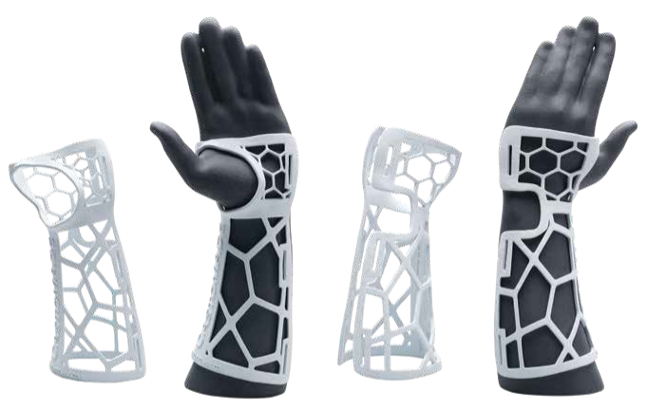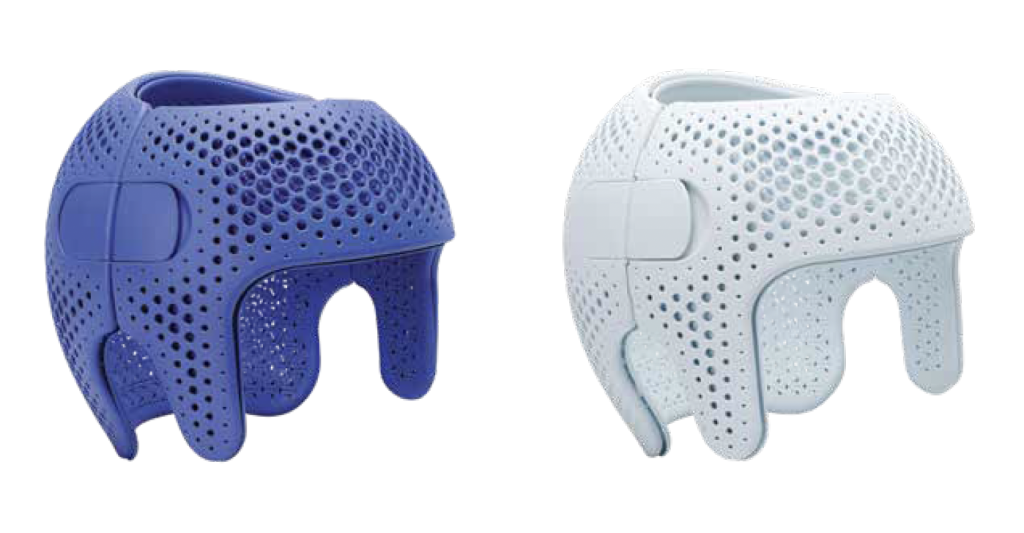As industries and their needs continue to evolve, the need for durable, high-quality materials in additive manufacturing is becoming increasingly critical. One material that stands out in this space is HP 3D High Reusability (HR) PA12 W—or simply PA12 W. This resilient thermoplastic is specifically designed for the HP Jet Fusion 5400W Series 3D Printing Solution and offers designers a unique mix of strength, flexibility, and recyclability. By understanding its mechanical properties, engineers and designers can make more informed decisions when selecting materials for their projects—everything from medical devices to consumer goods.
Tensile Strength and Modulus: Strength Under Stress
When selecting a material for a 3D printing project, tensile strength and tensile modulus are two of the most important factors to consider. In layman’s terms, tensile strength refers to a material’s ability to resist breaking under tension, while tensile modulus measures its resistance to elastic deformation. PA12 W has both of these properties, making it an ideal choice for parts that need to endure significant forces without failing, such as prosthetics or medical equipment.
Given these properties, PA12 W performs exceedingly well under stress, making it perfect for parts that will have to endure more demanding conditions. Its tensile modulus ensures that the parts not only hold their shape and functionality over time, but provide manufacturers with reliable, durable parts that perform consistently across different uses and applications.
 Elongation: Flexibility Without Compromising Strength
Elongation: Flexibility Without Compromising Strength
Another key property for many 3D printed parts is elongation, or a material’s ability to stretch or deform before breaking. While strength is crucial, PA12 W strikes the perfect balance between flexibility and durability, ensuring parts can absorb stress without losing their structural integrity. This is particularly valuable for applications where parts may need to bend, twist, or stretch, like wearable technology or medical devices.
PA12 W offers the flexibility needed to design parts that are tough yet adaptable. Whether used in protective housings, enclosures, or prosthetics, it handles the strains of everyday use without breaking down, delivering long-lasting performance.
Resilience Under Dynamic Conditions
While PA12 W excels in stable conditions, it really shines when it’s subjected to more fluctuating conditions. The material’s ability to maintain its form and resist breaking when exposed to variable forces makes it a perfect fit for applications involving impact or dynamic stress.
In addition, PA12 W’s inherent strength and flexibility means it can also handle sudden, high-impact conditions that are often found in automotive, industrial, and consumer products. This ability to endure fluctuating stresses is essential for parts exposed to shock or vibration, whether automotive components or wearables constantly on the move.
 Print Profile and Performance Testing
Print Profile and Performance Testing
Now that we’ve covered how PA12 W can withstand the elements post-creation, understanding how a material behaves during the 3D printing process is just as important. In the case of PA12 W, the material has undergone extensive print profile testing to ensure consistent performance in the X, Y, and Z orientations. These tests, carried out using a standard print job with various tensile specimens, evaluate performance under different stresses and conditions. You can read more about these tests here.
By utilizing balanced print modes and standard tests, PA12 W ensures reliable performance no matter how a part is printed, whether that’s vertically or horizontally. This means manufacturers can produce high quality parts with minimal variation, even in large volumes, making it a great choice for parts with tight tolerances and high-performance demands.
A Better Base For Color Customization
3D printing with PA 12 W opens up a world of possibilities for color customization, making it an excellent choice for industries and creatives alike. Its naturally white base provides a perfect canvas for vibrant and precise color application, allowing for stunning visual results. Unlike darker materials that can mute colors, the bright white hue of PA 12 W ensures that dyed or painted finishes appear true-to-tone and more vivid. This characteristic is especially beneficial for industries like consumer goods and automotive design, where aesthetic appeal and color accuracy are critical.
Why PA12 W Is Ideal for High-Performance Parts
There’s no denying that the mechanical properties of PA12 W make it a standout material for a variety of industries, especially those requiring strength, durability, and precision. Its combination of tensile strength, elongation, and modulus makes it perfect for applications where parts need to perform under stress — think automotive components, medical devices, and consumer goods like wearables or household appliances.
Beyond its mechanical properties, PA12 W offers an impressive environmental advantage: up to 80% powder reusability. This means unused powder can be recycled and reused in future print jobs, drastically cutting down material waste and overall production costs. The ability to reuse 80% of the powder not only makes PA12 W cost-effective, it also supports sustainability goals—an attractive benefit for companies like ABCorp aiming to reduce their environmental impact.
Applications Across Industries
Thanks to its exceptional mechanical properties, PA12 W is ideal for producing functional parts across a range of industries, from healthcare to automotive to consumer goods and fashion. In healthcare, it’s used to create durable prosthetics and surgical tools. In automotive, it offers high-strength solutions for parts that need to withstand extreme conditions. For consumer goods and fashion, its versatility allows manufacturers to produce customizable, high quality parts with intricate detail.
Conclusion
PA12 W is a versatile, high-performance material designed to meet the demands of modern additive manufacturing with the benefit of added color customization post print. Its tensile strength, elongation, and modulus make it the go-to choice for producing functional, high-quality parts that thrive in demanding environments. With the added benefits of 80% powder reusability and biocompatibility, PA12 W offers a reliable, cost-effective, and sustainable solution for industries ranging from healthcare to automotive. By choosing PA12 W and ABCorp 3D for your 3D printing needs, you can be confident that your parts are built to last, offering you long-term performance in a wide range of applications.

